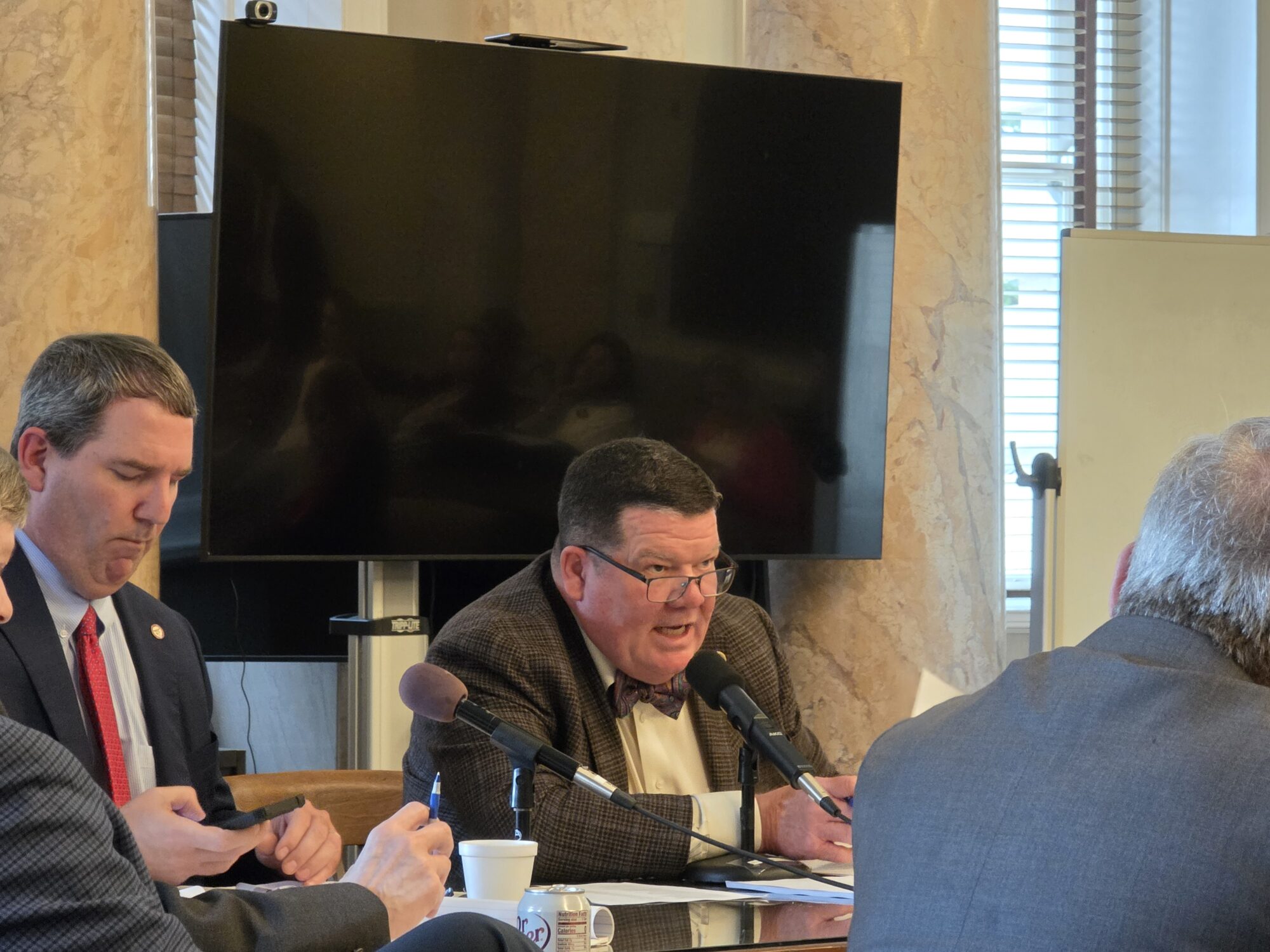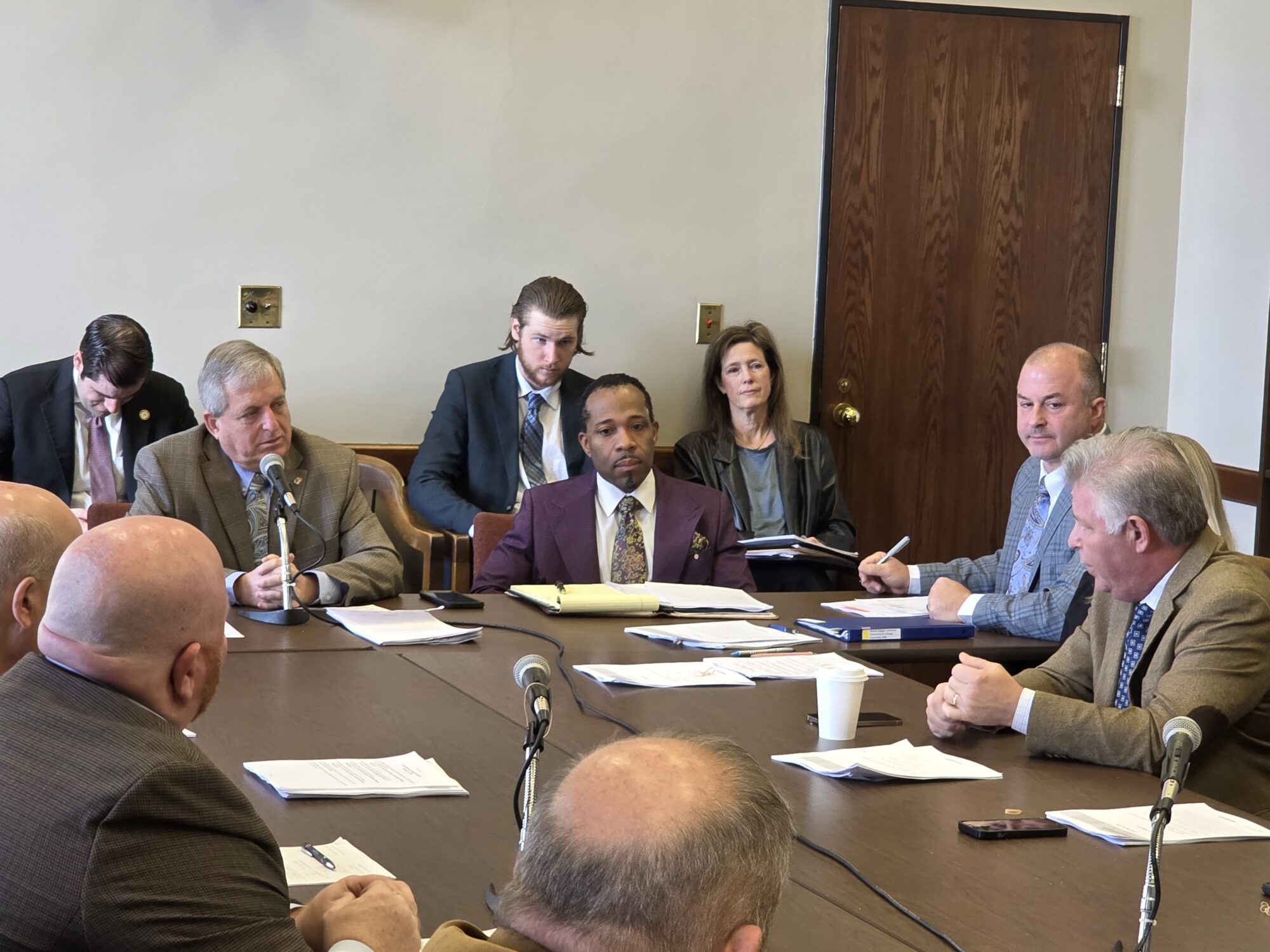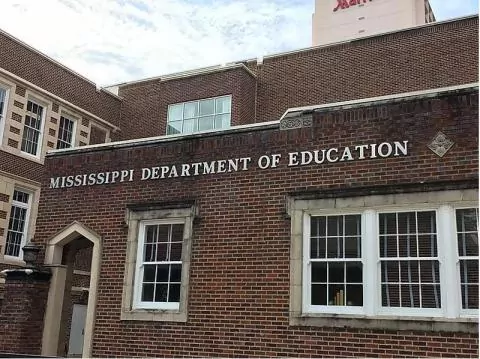
- As lawmakers discuss providing more education options for families, the Mississippi Department of Education tells lawmakers they want to provide Pre-K to all 4-year-olds while centering CTE programs on workforce needs in the state.
In an effort to continue the momentum in education advancements in the state, the Mississippi Department of Education is working to update its strategic plan, while establishing a focus on workforce development at the local district level. The department is also promoting a statewide universal Pre-K education program.
State Superintendent Dr. Lance Evans told the Mississippi Senate Education Committee during a recent hearing that his goal is to ensure public school is the best option for Mississippi’s families.
“It is 2024, and we know people have options, there are options out there. But as I said from the very beginning, my goal is to make sure public school is the very best option,” Evans told Senators.
As for those schooling options, lawmakers are considering ways in which to provide families more education freedom ahead of the 2025 legislative session as public school enrollment continues to decline in the state.
Seeking to continue educational advancement
Over the past several years, gains in public school achievement have been reported in Mississippi, largely seen in increased proficiency for students in grades 3 through 8 in math, science and English Language Arts. An increase in the state’s graduation rate to 88.9 percent for the previous school year has also been noted.
Additionally, 93 percent of all school districts in the state earned a C or higher on the most recent statewide accountability results. Those achievements have combined to raise the state’s national education ranking from 48th a decade ago to 35th this year, per Education Week’s Quality Counts report.
With the recent gains reported in the state’s public school performance, Senator Dennis DeBar (R), chairman of the Senate Education Committee, asked Dr. Evans what MDE’s focus will be to continue the advancement of Mississippi’s education system.
The State Superintendent pointed to literacy as a continued focus, with math, CTE and workforce development being central to their plan.
“It’s all culminating in producing the quality student we are looking for,” Evans said.
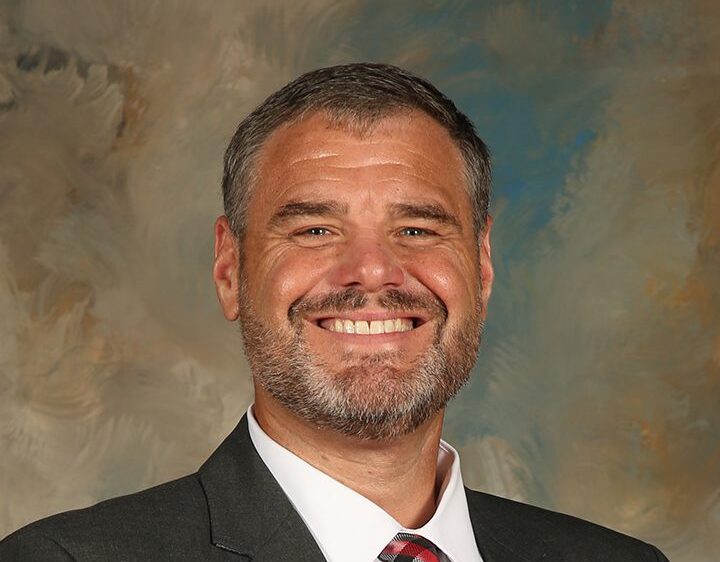
As previously reported, state education leaders have said it is time to update standards for student, school and district performance. The work to update those standards, however, will take about a year before implementation occurs.
Chief Accountability Officer Dr. Paula Vanderford told State Board of Education members in September that state law mandates that accountability standards be increased when the student proficiency scores are at 75 percent and/or 65 percent of schools are rated a B or higher on the assessment scale. For the 2023-2024 school year, 93.9 percent of districts and 85.7 percent of schools in the state were rated a C or higher. Those rated an A or B for that same school year include 70.3 percent of districts and 66.7 percent of schools.
Pre-K program expansion
Dr. Evans believes that making public school the best option for families starts in Pre-K classrooms.
“There is a distinct difference in a student who has been through a structured Pre-K program,” Evans told lawmakers at the hearing. “We have to make sure we’re getting our students off on the right step moving forward in order for us to reap the benefits of that as a state 12, 13, 14 years later.”
According to numbers provided by MDE, the state investment in Pre-K for the 2023-2024 school year was near $24 million. The per pupil cost under the Early Learning Collaborative program was $3,500.
Of the estimated 32,927 four-year-old children residing within the state during that school year, about 19,775 were being served by some sort of Pre-K program through that funding and/or federal or local funds. MDE reported that 7,145 four-year-olds were in a state funded program, 7,465 were attending a Head Start program, 1,166 were served by the Individuals with Disabilities Education Act (IDEA) program and 3,999 were enrolled in a Pre-K program that was funded by Title I and local funding.
Using the per pupil cost, MDE estimates it would cost an additional $46 million to bring in the remaining 13,152 children not being served by a Pre-K program in the state.
But is a state-run Pre-K the best option for the youngest of learners? While the natural bent of the education world would say yes, research and results vary on the topic.
For example, the National Institute For Early Childhood Research released a study in 2021 out of Boston that showed preschool students had better disciplinary records and were much more likely to graduate from high school, take the SATs and go to college, though their test scores didn’t show a difference, as reported by NPR. However, a study later that year from the American Psychological Association looked at the effects of a statewide pre-kindergarten program in Tennessee on children’s achievement and behavior through sixth grade. The results were less than desired.
While the Boston study focused on mixed-income students, Tennessee’s program was for those considered as low-income. The difference forced researcher Dale Farran to delve deeper.
“Farran points out that families of means tend to choose play-based preschool programs with art, movement, music and nature. Children are asked open-ended questions, and they are listened to,” NPR reported. “This is not what Farran is seeing in classrooms full of kids in poverty, where ‘teachers talk a lot, but they seldom listen to children.’ She thinks that part of the problem is that teachers in many states are certified for teaching students in prekindergarten through grade 5, or sometimes even pre-K-8. Very little of their training focuses on the youngest learners.”
Farran went on to challenge the idea that teacher certification equals quality while noting differences in how private versus public Pre-K programs create their learning spaces, handle learning times, and dispense discipline.
CTE program adjustments to meet workforce demand
Beyond Pre-K, Dr. Evans said MDE is in the process of ensuring career and technology (CTE) courses are aligned with the needs in the private sector while considering the removal of courses with low enrollment.
When asked what CTE programs are being considered for closure to make way for more aligned courses, a spokesperson for MDE told Magnolia Tribune that there are no programs currently being considered for closure, but state enrollment audits are being conducted to identify courses with less than 10 students enrolled.
“The office is working with those districts to increase student enrollment or make appropriate adjustments to program offerings that are more aligned to needs and student interests,” MDE stated in response.
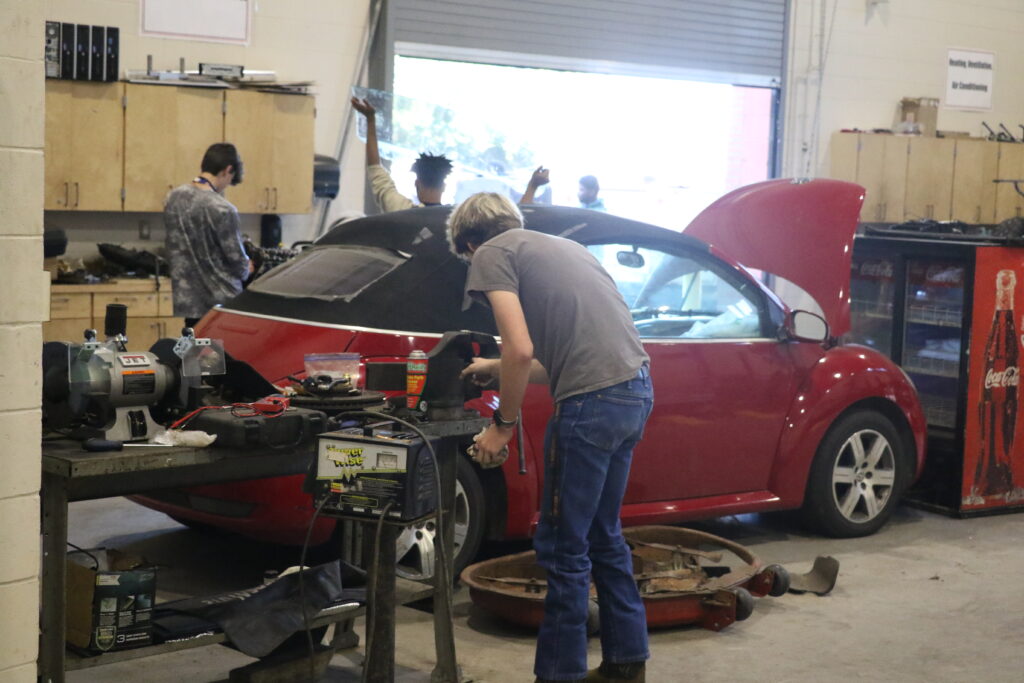
To ensure the goal of aligning courses with the state’s employment needs is met, MDE’s Office of Career, Technical, and Workforce Development Education continually works with school districts, business/industry, and other workforce related state agencies to assess the programs currently offered through CTE at the secondary level.
MDE said the more than two dozen CTE programs offered in public schools focus on skills aligned to the national career clusters and Mississippi’s workforce needs. There are five workforce sectors of high priority for the state’s CTE programs, which include healthcare, manufacturing, information technology, energy, and distribution/logistics. Those five sectors serve as guides to identify new pathways for CTE curriculum development, per MDE.
“Most recently, the office has focused on revising the current advanced manufacturing and information technology curriculums and continues to research the statewide impact for new programs related to cyber security, aviation, and mechatronics,” a spokesperson for MDE stated.
Truancy and school attendance officers
The transfer of school attendance officers to local districts was also discussed with lawmakers during the recent Senate hearing. Dr. Evans agreed that the officers should report to local superintendents, as was considered during the last legislative session, but he wants MDE to keep some level of oversight.
Senator Sollie Norwood (D) asked Evans what is currently being done to ensure SAOs are reporting instances of truancy, citing constituent reports of a lack of truancy enforcement. Dr. Evans said if an officer is not reporting truancy cases, MDE will take action but ultimately it comes down to the parent or guardian to ensure children are attending school.
“The struggle is real across the state,” Evans said. “And life happens, but the bottom line is the adults who are responsible for the students in school, the parents and guardians, whatever, have to be held accountable.”
However, Senate Education Committee Chair Senator DeBar cautioned against being too aggressive with truancy.
“I think it’s a delicate balance,” DeBar said. “I think at some point, if you’re punishing the parents too much, they’re going to say, ‘Ok, I don’t want to be in the system anymore, I’m just going to homeschool my child,’ and with our lax homeschool laws there’s nothing to prevent that at this point.”
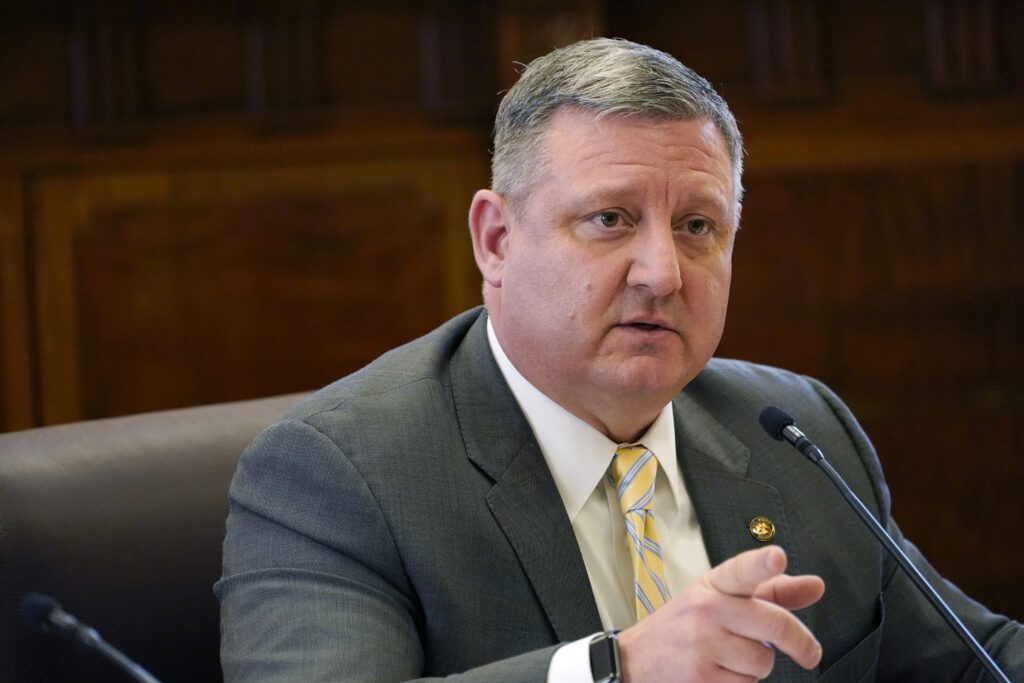
Public school enrollment decline and the rise of other schooling options
DeBar has reason to be concerned.
Mississippi school districts are seeing declines in enrollment numbers, with education leaders citing lower birth rates in the state, and on average across the nation, as well as moves to other options such as homeschooling.
The number of students enrolled in Mississippi’s public schools for the 2022-2023 school year was 440,285, according to data recorded by MDE. For the 2023-2024 school year, that number dropped to 436,523.
For comparison, enrollment in the 2006-2007 school year totaled 495,026 children, meaning Mississippi saw roughly 30,000 less public school students in that five-year period.
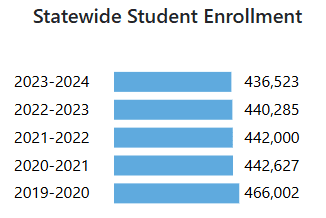
As for the growing trend of homeschooling, MDE reports that in the 2016-2017 school year, there were 17,365 students being homeschooled. The number has fluctuated through the subsequent years, ranging from a high of 25,780 during the 2020-2021 school year, to most recently reaching 23,872 for the 2023-2024 school year.
Outside of homeschooling, parents have other options, such as private schools. The National Center for Education Statistics reports that nearly 50,000 children were enrolled in private schools in 2021.
Legislative efforts aimed at allowing Education Savings Accounts (ESAs) for use by any family that prefers to send their child to a private school, not just those with special needs, is a hot topic heading into the 2025 legislative session.
Nationally, there has been growing support for ESAs across party lines. Here in Mississippi, talks of how to best move the conversation forward are expected to continue as the session nears, House Education Committee chairman State Representative Rob Robertson (R) told Magnolia Tribune earlier this month.
Editor’s note — This story has been updated to reflect that 93 percent of districts in the state earned a C or higher on the most recent accountability results, not statewide assessments; that state law requires accountability standards, not the assessment standards, are to be increased when student proficiency scores reach 75 percent; and that Pre-K funding includes federal and local funds.
